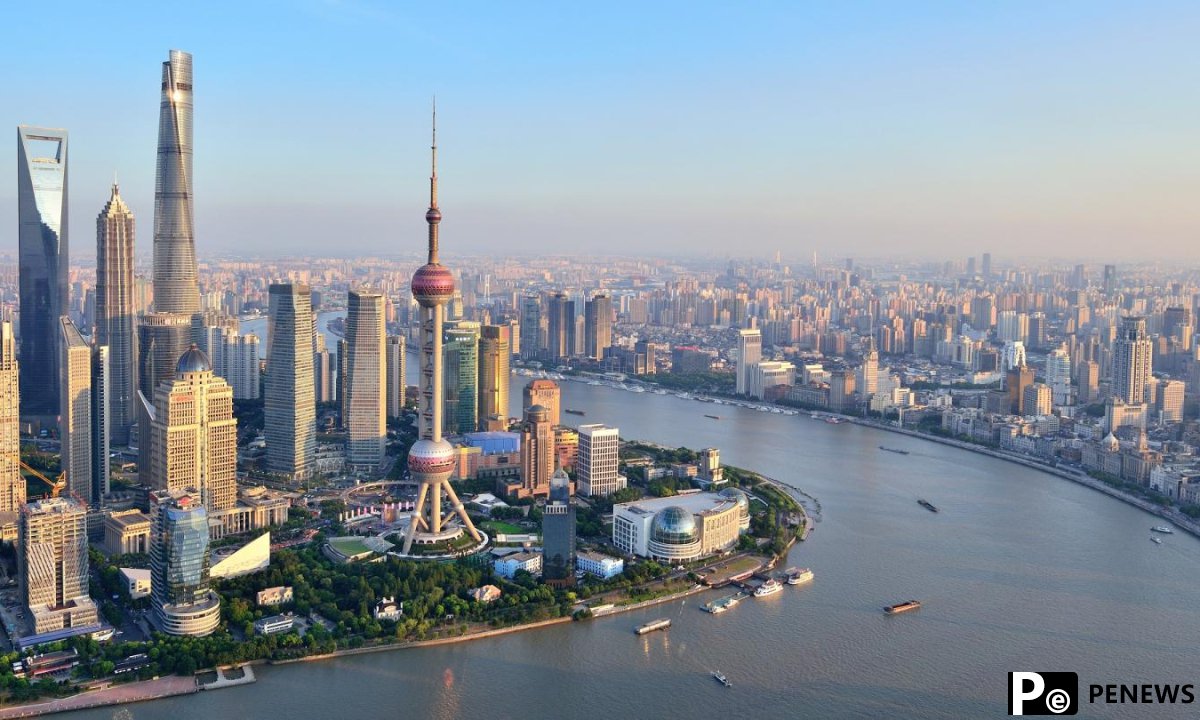Home>>
China unveils policy package to boost economy, reflecting focus on high-quality development despite external uncertainties(Global Times) 08:50, May 08, 2025

At a closely watched press conference on Wednesday morning, Pan Gongsheng, governor of the People's Bank of China (PBC), the central bank, announced 10 measures across three areas, including a cut of 0.5 percentage points to the RRR, which is expected to inject about 1 trillion yuan ($138.56 billion) in long-term liquidity into the market.
From both macro and micro perspectives, the RRR cut is expected to serve multiple purposes, including boosting domestic demand and accelerating structural adjustments, Lian Ping, director and chief economist of the Guangkai Chief Industry Research Institute, told the Global Times on Wednesday.
Among the other major policy measures, the seven-day reverse repo rate, another main policy rate, will be lowered from the current 1.5 percent to 1.4 percent, which will drive the loan prime rate down by 0.1 percentage points, Pan said.
Moreover, monetary authorities will improve the reserve requirement system, and reduce the RRR for auto financing firms and financial leasing firms from 5 percent now to zero, Pan noted.
The central bank also announced that it will lower the interest rates on personal housing provident fund loans by 0.25 percentage points starting Thursday. The adjustments are expected to save homebuyers more than 20 billion yuan in annual mortgage interest payments through the housing provident fund, Pan said.
Pan also announced other new policy tools at the press conference, including a 500-billion-yuan relending facility aimed at enhancing the supply of services and eldercare. The "services consumption and eldercare relending program" is an innovative move by the PBC to support consumption, he said.
At the press conference on Wednesday, officials from other top financial regulators also announced various policy measures. Li Yunze, head of the National Financial Regulatory Administration (NFRA), announced that a set of policy measures will be introduced to support the foreign trade sector through the banking and insurance system, when addressing the disruptions to global trade caused by the US tariffs.
Specifically, targeted services will be provided to market entities heavily affected by tariffs, with efforts focused on helping them stabilize operations and expand market access.
Wu Qing, chairman of the China Securities Regulatory Commission, also outlined at the press conference comprehensive plans, including developing technology innovation bonds and attracting long-term funds, to ensure the sound and stable development of the capital market.
The sweeping new measures follow a key meeting held recently by the Political Bureau of the Communist Party of China Central Committee, which emphasized the need to stabilize employment, businesses, markets and expectations, using the certainty of high-quality development to counter the uncertainties arising from rapid changes in the external environment.
The measures also came as the US' tariffs have caused profound disruptions to global trade and the world economy.
Asked to comment on the recent repeated claims by the US that the high additional tariff is unsustainable for Beijing, Chinese Foreign Ministry spokesperson Lin Jian said on Wednesday that no external shocks can change China's economic fundamentals, which have a stable foundation, numerous strengths, remarkable resilience and vast potential; nor can they change the consistent trend of China's steady progress in pursuing high-quality development.
"China is highly resilient under pressure and has a full toolbox to defend our legitimate rights and interests, and stand ready to work with the international community to enhance solidarity and coordination, jointly oppose unilateralism, protectionism and economic bullying, safeguard multilateral trading system and uphold international fairness and justice," Lin told a regular press briefing.
Despite significant external shocks, China's economy has maintained stable growth, with the GDP growing by 5.4 percent year-on-year in the first quarter. Since April, China's financial system has also remained stable, with financial markets showing strong resilience. After a drop on April 7, the Shanghai Composite Index quickly rebounded and stabilized. The yield on 10-year government bonds has hovered at about 1.65 percent, while the yuan, having weakened slightly against the US dollar, has since recovered to about 7.2, Pan noted.








